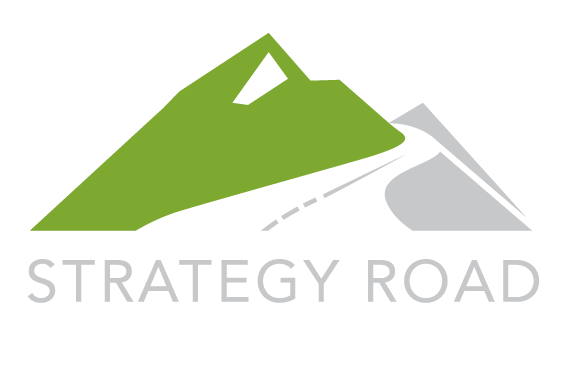In one or two steps anyone can build just about anything.
Then move to the next task.
Need that … BAM! Then that … POW!
While this is progress, is it also increasing willingness to accept ordinary?
“The difference between ordinary and extraordinary is practice.” Vladimir Horowitz
I recently pondered what it takes for someone to go from zero to hero, be this professionally, or to build proficiency in a musical instrument, or speaking a foreign language, becoming a master chef or triumphing in surfing, cycling or tennis. Talent clearly has a role, but what takes someone from dabbling to becoming more than ordinary?
Professional musicians often talk of the intense practice to build mental and motor skills — to the point where they are playing somewhat on auto pilot.
“Learning to play the guitar is a combination of mental and motor skills acquisition. And, to develop motor skills, repetition is essential.” Howard Roberts
This guided me to the concept of ‘deliberate practice.’ Deliberate practice assumes that expert-level performance is primarily the result of expert-level practice NOT due to innate talent.
Expert-level deliberate practice …
- You must be motivated to attend to the task and exert effort to improve your performance. For example, initial attempts at a task may spark a passion, or illustrate some perceived natural talent, and on this ignite motivation to put in the effort required.
- The design of the task should take into account your pre-existing knowledge so that the task can be correctly understood after a brief period of instruction. For example, the learning style is tailored to your existing knowledge base and skills, to allow easier understanding.
- You should receive immediate informative feedback and knowledge of results of your performance. For example, a teacher or coach is able to provide clear and constructive feedback on refinements necessary to improve knowledge and skills.
- You should repeatedly perform the same or similar tasks. For example, consistently, frequently and systematically practicing, iterating building on existing skills base and informative feedback.
Practice, practice and more practice. And, it is critical that you are ever pushing to higher standards, failing, but learning and pushing through the frustration. The motivation to push through the likely headaches associated with gaining expertise is critical. This is the role of ‘passion.’ While it will not take the pain away, passion makes it a bit less painful through the hours and hours of practice. Passion pulls one through the practice dip, when many would sooner quit.
My fear is that as we move forward, there will be an increasing tendency towards people being a ‘jack of all trades’ rather than a ‘master of one.’ Rather than opting for deep ‘superpowers’ in a focused area, people will prefer to be mediocre in many.
In Malcolm Gladwell’s book ‘Outliers’ he notes that the difference between those who are ordinary and the extraordinary is far less about talent and more so deliberate and professional practice. Gladwell argued that elite performers have upward of 10,000 hours of practice, more than twice that of others.
As the authors of the earlier research simplified by Gladwell note …
“Research has shown this to be true in field after field. It generally takes about ten years of intense study to become a chess grandmaster. Authors and poets have usually been writing for more than a decade before they produce their best work, and it is generally a decade or more between a scientist’s first publication and his or her most important publication — and this is in addition to the years of study before that first published research. A study of musical composers by the psychologist John R. Hayes found that it takes an average of twenty years from the time a person starts studying music until he or she composes a truly excellent piece of music, and it is generally never less than ten years.” Anders Ericsson and Robert Pool
Entrepreneurs are said to succeed by ‘failing fast.’
Our appetite for succeeding (and failing) fast is seemingly growing. But, perhaps true success comes more so from learning fast, practice (and practice, and practice, and practice), gaining ongoing feedback, learning, iterating and getting better, and practicing some more (and some more), and eventually moving beyond the ordinary.
If success is seen to come from failure, perhaps we are missing the point, and giving up too soon. Perhaps our main failure is not having the precision, passion, persistence and practice to create the extraordinary.
And, if you haven’t got the time or inclination to practice to become anything but ordinary, seek out those who have gone the 10,000 miles. There are many musicians, actors, artisans, designers, programmers, marketers, market researchers, strategists, planners, creatives, inventors, entrepreneurs and more who have honed their skills over many, many years to become extraordinary.
I'll leave the closing words to one of history's great entrepreneurs - inventor of the phonograph, the motion picture camera, and the long-lasting, practical electric light bulb - Thomas Edison ...
“I have not failed. I’ve just found 10,000 ways that won’t work."
...................................................................
Market research (such as that provided by Square Holes) is an awesome way for those passionate about becoming extraordinary in their dealings with customers and potential customers. We provide evidence based informative feedback and knowledge of results of your performance, from customer feedback and brand health monitoring to testing new products and providing consumer insights to assist your strategic deliberate practice. Just turning 12, calculates to 25,000+ hours doing what Square Holes does.
Thank you for reading to the end. I salute you! :-)
Jason Dunstone
Managing Director
Square Holes
Originally published on LinkedIn.

